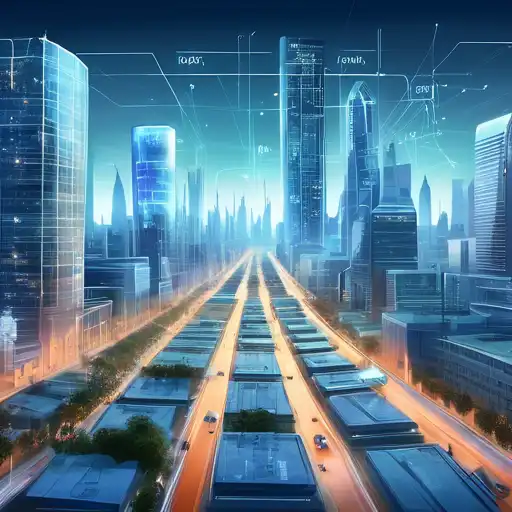Introduction to IoT and Smart Cities
The Internet of Things (IoT) is revolutionizing the way cities operate, making them smarter, more efficient, and more responsive to the needs of their inhabitants. By connecting devices, vehicles, and infrastructure to the internet, cities can collect and analyze data to improve services, reduce costs, and enhance the quality of life for residents.
Key Areas Where IoT is Making an Impact
From traffic management to waste disposal, IoT technologies are being deployed across various sectors to create more sustainable and livable urban environments. Here are some of the key areas where IoT is making a significant impact:
- Traffic and Transportation: IoT-enabled sensors and cameras monitor traffic flow in real-time, allowing for dynamic traffic light adjustments and reducing congestion.
- Energy Efficiency: Smart grids and meters optimize energy use, reducing waste and lowering costs for both the city and its residents.
- Waste Management: Sensors in trash bins signal when they are full, optimizing collection routes and frequencies.
- Public Safety: Surveillance systems and emergency response tools use IoT to enhance security and reduce response times.
Benefits of IoT in Urban Development
The integration of IoT into city infrastructure offers numerous benefits, including improved efficiency, sustainability, and citizen engagement. By leveraging data and connectivity, cities can not only solve existing problems but also anticipate future challenges.
Challenges and Considerations
Despite its potential, the adoption of IoT in smart cities faces several challenges, such as privacy concerns, cybersecurity risks, and the need for significant investment. Addressing these issues is crucial for the successful implementation of IoT solutions.
Future Prospects
As technology continues to evolve, the possibilities for IoT in smart cities are boundless. Innovations in AI and machine learning, combined with IoT, promise to further enhance urban living, making cities more adaptive and resilient.
For more insights into how technology is shaping our future, explore our articles on technology innovation and sustainable urban development.
Conclusion
The role of IoT in making cities smarter cannot be overstated. By harnessing the power of connected devices and data analytics, urban areas can become more efficient, sustainable, and livable. The journey towards fully realized smart cities is ongoing, but the progress made so far is a testament to the transformative potential of IoT.
